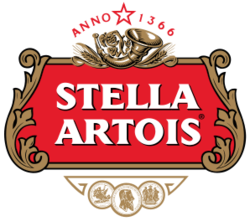
"Variety made people less happy, not more" Daniel Gilbert
When I worked in a downtown law firm, there were many choices available for lunch. And groups of lawyers wasted much valuable time making these decisions.
But, for me, there were only two decision -left or right, once I got to the lobby doors.
 Left at the lobby door meant going to Epicure, for a cheeseburger and a Stella.
Left at the lobby door meant going to Epicure, for a cheeseburger and a Stella.
 Left at the lobby door meant going to Epicure, for a cheeseburger and a Stella.
Left at the lobby door meant going to Epicure, for a cheeseburger and a Stella.
Right, on the other hand, meant going to Tortilla Flats, for chili and a Creemore.
Monotony was the spice of my life.
Drove my partners crazy, who insisted on long & complex decision procedures for where to have lunch.
Our firm was located in the Fashion District of Toronto. So, there were many excellent restaurants in the area.
My partners insisted on full discovery rights before adopting a particular position about where to eat for lunch.
These "decisions" could take up to a better part of a 1/2 hour. Unremarkably, these searches produced no reliable decisions.
My Ph.D. in decision theory won me no respect. We "had" to engage in the search costs. Because everyone "knows" that variety is is the spice of life.
Turns out this is false & minimizing decision time also makes for a better lunch.
Daniel Gilbert, "Stumbling on Happiness", demonstrates that there is sound basis for my lunch simple rule.
No matter how lovely the view of lake, the quench of craft ale, the salty crunch of kosher chicken barbequed, all experiences fade to dull.
We become habituated.
There are two ways to beat habituation, or diminishing utility.
First, we can vary the experience. For example, we go to numerous craft beer tastings, or find different views of the lake, and so on.
The second way, however, is craftier: Simply increase the the time between the same pleasurable event.
"When episodes are sufficiently separated in time, variety is not unnecessary -- it can actually be costly".
Every other day, chili and Creemore is wonderful. As is a cheeseburger and Stella. You cannot do better if you searched high and low.
So, I told you this story just to make a bigger point - about customer loyalty programs.
If you are the franchise owner of Dunkins, Seattle's Best, or Krystal, then Daniel Gilbert has just designed your customer loyalty program.
Loyalty programs at QSR's are designed by the franchisor's staff who believe that only good things can come from offering loyal customers discounts, coupons, and other freebies. All of which come out of the franchise owner's pocket book.
But, Gilbert's scientific research offers a different loyalty program. It is simple. For the loyal customer, take away the menu choices. But spread out what they like over visits so they are habituated.
Sell subscriptions to a limited menu, available only to the loyal customers who had earned the privilege of beating 'the variety trap."
Help them make the only choices that count -left or right. They will have a better experience & make it to your location more often.
If you thought this was interesting and would like to read more in depth strategic stories, sign up here - you will be taken to a MailChimp signup page.


Leave a comment